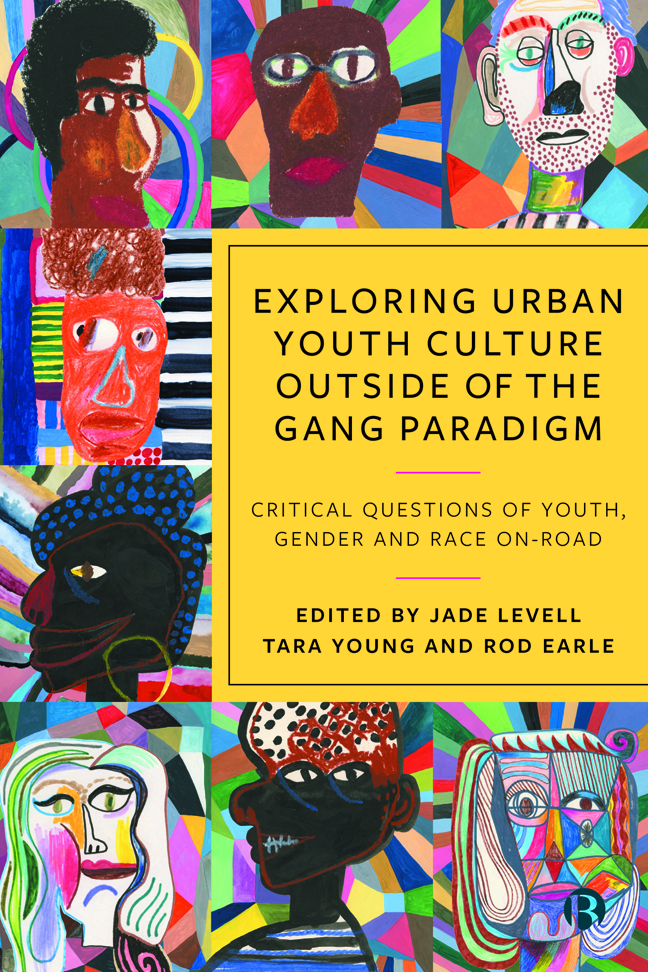 Exploring Urban Youth Culture Outside of the Gang Paradigm
Exploring Urban Youth Culture Outside of the Gang Paradigm Book contents
- Frontmatter
- Contents
- Notes on Contributors
- Foreword
- Preface
- 1 Introduction: Youth and On-Road – Making Gender and Race Matter
- 2 Black, British Young Women On-Road: Intersections of Gender, Race and Youth in British Interwar Youth Penal Reform
- 3 Tainted Love: Intimate Relationships and Gendered Violence On-Road
- 4 (The) Trouble with Friends: Narrative Stories of Friendship and Violence On-Road
- 5 The Sexual Politics of Masculinity and Vulnerability On-Road: Gender, Race and Male Victimisation
- 6 The Road, in Court: How UK Drill Music Became a Criminal Offence
- 7 On-Road Inside: Music as a Site of Carceral Convergence
- 8 Jeta e Rrugës: Translocal On-Road Hustle, Within and from Albania
- 9 ‘He's shown me the road’: Role Model and Roadman
- 10 Diary of an On-Road Criminologist: An Auto-Ethnographic Reflection
- 11 Conclusions, Compromises and Continuing Conversations
- Index
10 - Diary of an On-Road Criminologist: An Auto-Ethnographic Reflection
Published online by Cambridge University Press: 24 January 2024
- Frontmatter
- Contents
- Notes on Contributors
- Foreword
- Preface
- 1 Introduction: Youth and On-Road – Making Gender and Race Matter
- 2 Black, British Young Women On-Road: Intersections of Gender, Race and Youth in British Interwar Youth Penal Reform
- 3 Tainted Love: Intimate Relationships and Gendered Violence On-Road
- 4 (The) Trouble with Friends: Narrative Stories of Friendship and Violence On-Road
- 5 The Sexual Politics of Masculinity and Vulnerability On-Road: Gender, Race and Male Victimisation
- 6 The Road, in Court: How UK Drill Music Became a Criminal Offence
- 7 On-Road Inside: Music as a Site of Carceral Convergence
- 8 Jeta e Rrugës: Translocal On-Road Hustle, Within and from Albania
- 9 ‘He's shown me the road’: Role Model and Roadman
- 10 Diary of an On-Road Criminologist: An Auto-Ethnographic Reflection
- 11 Conclusions, Compromises and Continuing Conversations
- Index
Summary
Provocation
Who engages research participants who come from communities deemed ‘high risk’, ‘hard to reach’, ‘hard to identify’, ‘hard to access’ or just plain frightening? Who is qualified to access those same communities and is required to demonstrate credibility in order to receive that access and gain valuable insights alongside the data? What does a researcher do when he or she is faced with an emerging situation that is ‘spontaneous’ and ‘instant’, which requires an ‘improvised’ approach to the gathering of data? What happens when such encounters are captured with sensitivity, when ethical considerations for the safety of those involved are taken into consideration, even when the site where the events took place is chaotic? Who decides that these encounters are not valid forms of understanding the social world? And who discounts the gatherer of such information, as merely acting like a journalist? These are all questions I myself face, have faced and continue to face. Welcome to the autoethnographic reflections of an ‘on-road’ criminologist.
First, I want to make my position clear. Based on the sheer awkwardness and barriers imposed upon my own work over the years, this chapter sets out to develop a position which is less dictated by institutional protocols, and more within a paradigm where research is part of a process of reflecting hidden and silent research narratives.
On-road researcher
‘On-road’ is a term broadly used to depict the code of the streets. For me, an ‘on-road’ criminologist is ‘a credible researcher who has been granted permission, alongside access to the lives and stories of individuals not accessible in the traditional routes of engagement when conducting academic research’ (Glynn, 2021). The key to gaining access to people in my constituency comes through my own lived experience, which like theirs has also been fraught with danger and fear, although in my case not because of a criminal lifestyle. My implicit knowledge of, and connection to, the ‘road life’ from which they come is also a prerequisite. In addition, powers of persuasion, street level reasoning, and navigating the code of the streets must become embedded in the ‘on-road’ researchers’ ‘modus operandi’.
- Type
- Chapter
- Information
- Exploring Urban Youth Culture Outside of the Gang ParadigmCritical Questions of Youth, Gender and Race On-Road, pp. 170 - 185Publisher: Bristol University PressPrint publication year: 2023
